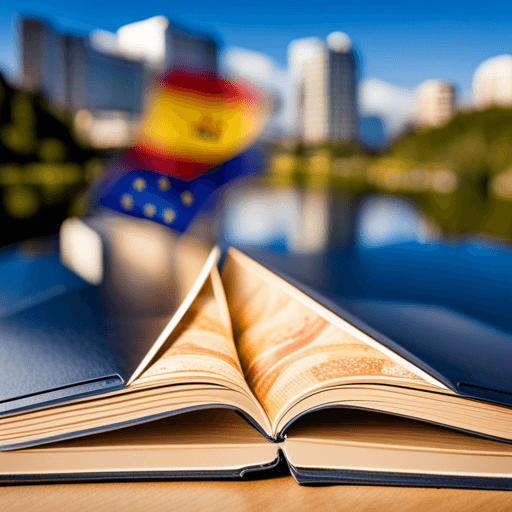Spain is one of the most popular destinations for international property buyers, offering a warm climate, stunning scenery, and a relaxed way of life.
However, buying property in Spain can be a complex process, especially for those unfamiliar with the country’s laws and regulations. That’s where this comprehensive guide comes in.
Whether you’re a first-time buyer or a seasoned investor, we’ll take you through every step of the process, from finding the right property to completing the purchase. We’ll cover everything from the legal requirements and taxes to the best locations and property types.
And, because we understand the importance of making a smart investment, we’ll also share our top tips for finding the best deals and avoiding common pitfalls. So, if you’re ready to make your dream of owning a property in Spain a reality, let’s get started!
Benefits of Buying Property in Spain
There are many reasons to consider buying property in Spain.
For one, the country’s warm climate and stunning scenery make it an ideal place to escape the cold and dreary weather of northern Europe.
Additionally, Spain’s relaxed way of life, delicious food, and rich culture make it a popular destination for tourists and expats alike.
But there are also many financial benefits to buying property in Spain. For one, property prices in Spain are often much lower than in other parts of Europe, making it an affordable option for those looking to invest in real estate.
Additionally, Spain’s strong rental market means that it’s relatively easy to rent out your property for extra income when you’re not using it yourself.
Overview of the Spanish Property Market
Before you start looking for a property for sale in Spain, it’s important to understand the current state of the Spanish property market.
Like many other countries, Spain experienced a property boom in the early 2000s, which was followed by a sharp decline during the global financial crisis of 2008. Since then, the market has been slowly recovering, with prices and sales volumes gradually increasing.
Today, the Spanish property market is relatively stable, with prices varying depending on location, property type, and other factors.
In general, properties in popular tourist destinations such as the Costa del Sol and the Balearic Islands tend to be more expensive than those in less well-known areas.
Legal Requirements for Buying Property in Spain
Buying property in Spain comes with a number of legal requirements that international buyers need to be aware of.
For one, it’s important to obtain a Spanish tax identification number (NIE) before you can complete any property transactions.
You’ll also need to open a Spanish bank account and obtain a Spanish mortgage if you need financing.
Additionally, it’s important to work with a reputable lawyer who can guide you through the buying process and ensure that all legal requirements are met. Your lawyer will help you review the purchase contract, obtain necessary permits and licenses, and ensure that the property is free of any liens or encumbrances.
Finding the Right Property in Spain
Once you’ve familiarized yourself with the legal requirements for buying property in Spain, it’s time to start looking for the right property. T
here are many resources available for international buyers, including online property portals, real estate agents, and property exhibitions.
When searching for a property in Spain, it’s important to consider your budget, location preferences, and property type. Do you want a beachfront apartment, a rustic farmhouse in the countryside, or a modern villa with a pool?
Would you prefer to be close to tourist hotspots or in a quieter, more rural area?
These are all important factors to consider when searching for a property in Spain.
Financing Options for Buying Property in Spain
If you need financing to buy a property in Spain, there are several options available. Spanish banks offer mortgages to international buyers, although you’ll typically need to have a Spanish bank account and a NIE number to qualify.
Alternatively, you may be able to secure financing from a bank in your home country. Many international banks offer mortgages for properties in Spain, although the terms and interest rates may be different than those offered by Spanish banks.
Negotiating the Purchase Price and Making an Offer
Once you’ve found the right property and secured financing (if necessary), it’s time to make an offer. In Spain, it’s common for buyers to make an initial offer that’s lower than the asking price, and then negotiate with the seller until a mutually acceptable price is reached.
When making an offer, it’s important to consider factors such as the current state of the property market, the condition of the property, and any necessary repairs or renovations. Your real estate agent or lawyer can help you determine a fair offer price and negotiate with the seller on your behalf.
Closing the Deal and Transferring Ownership
Once you’ve agreed on a purchase price, it’s time to close the deal and transfer ownership of the property. This typically involves signing a purchase contract and paying a deposit (usually around 10% of the purchase price). The sale will then be finalized at a notary’s office, where the purchase contract and other necessary documents will be signed and the remaining balance will be paid.
After the sale is complete, you’ll need to register the property with the local land registry and obtain a title deed (escritura) that proves your ownership of the property.
Taxes and Fees Associated with Buying Property in Spain
Buying property in Spain comes with a number of taxes and fees that buyers need to be aware of. These include:
– Value-added tax (VAT): Currently set at 10% for new properties and 21% for commercial properties.
– Transfer tax (ITP): Currently set at between 6% and 10% of the purchase price, depending on the region.
– Notary and registry fees: These typically amount to around 1% of the purchase price.
– Legal fees: Depending on the complexity of the transaction, legal fees can range from a few hundred euros to several thousand.
Maintaining and Managing Your Spanish Property
Once you’ve bought a property in Spain, it’s important to keep it well-maintained and manage it effectively. This may involve hiring a property management company to handle things like cleaning, maintenance, and rental management. You’ll also need to pay annual property taxes and utility bills, as well as any community fees if your property is part of a complex or development.
Conclusion: Is Buying Property in Spain Right for You?
Buying property in Spain can be a great investment and a wonderful way to enjoy the country’s warm climate, stunning scenery, and relaxed way of life.
However, it’s important to understand the legal requirements, taxes, and other factors involved in the buying process before making a decision.
If you’re considering buying property in Spain, we hope this comprehensive guide has been helpful. Whether you’re a first-time buyer or a seasoned investor, we wish you luck in finding the perfect property and making your dream of owning a piece of paradise in Spain a reality.


